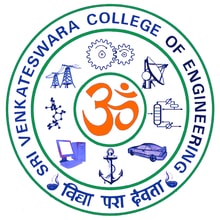WHAT DO ELECTRICAL ENGINEERS DO?[Text Wrapping Break]
Electrical Engineers use knowledge of machines, circuitry, and power generation to plan, design, and implement projects that harness different components of electricity and power. They use their electrical system knowledge in projects that are so small they could fit into your pocket to larger projects like ‘aircraft electrical systems or communications systems’. Once done, they design and test their projects, ensuring that everything created is safe.
SCOPE OF ELECTRICAL ENGINEERING CAREERS
One can find space for an electrical engineer in a wide range of fields. The field continues to be lucrative with the advent of all the 21st-century computing technology and electrical devices like smartphones and computer systems. The electrical engineer even has an extensive opportunity within the field of biomedical engineering.
TYPES OF INDUSTRIES FOR ELECTRICAL ENGINEERS Electrical engineers are usually concerned with large-scale electrical systems like motor control and power transmission in power transmission company jobs, utilizing electricity to transmit energy, etc. Electrical engineers work on a diverse range of technologies, such as the designing of household appliances, lighting, and wiring of buildings, telecommunication systems, electrical power stations, satellite communications, etc. Another emerging field for electrical engineers is microelectronics, which involves the designing and development of electrical systems and circuits in computers and mobile devices.
SVCE graduates are not just limited to the industries mentioned above. The Electrical Engineering degree at SVCE teaches you excellent problem-solving skills and logical thinking. The courses are structured in a way that encourages analytical thinking, helps students master time management, and ensure the technical proficiency of the students.[Text Wrapping Break]
Because of this, electrical engineers from SVCE are in high demand in various areas, including:
Renewable energy
- Global Positioning System (GPS) technologies
- Mobile networking
- Banking
- Finance
- Arts
- Management Consulting
Most people relate Electrical Engineering with wires and circuits, but it is much more than that. Electrical Engineers are needed not only in the construction or power industry but also in telecommunication, IT, navigation, railways, automobile, architecture, aerospace, defense, etc. From maintaining power grids to supervising research and development of electronic devices and technology to designing circuits for computers, Electrical Engineers are required in various fields.
This branch of Engineering is basically required broadly in two fields: Power and Telecommunication.
POWER ENGINEERS
Power Engineers are involved in the generation and transmission of electricity. Their service is sought the most in the automobile industry as they are responsible for designing, manufacturing, and maintaining engines and maintaining the flow of power from the engine attached to devices. Power Engineers have specialized skills in microelectronics as well, where they design and manufacture tiny power circuits used in computers and other electronic devices.
TELECOMMUNICATION ENGINEERS
They mainly work on designing and maintenance of cables. Their service is also sought for the production of receivers and transceivers. Key roles of an Electrical Engineer are:[Text Wrapping Break]
- Designing, manufacturing and operating power plants, industrial machinery, electrical motors, and ignition systems for automobiles, aircraft, space crafts and other types of engines
Research and design improved ways of using electrical power
Compute the cost of manufacture, construction, and installation of electrical equipment as per specifications
Some of the Electrical Engineering jobs include:
- Control and Instrumentation
- Engineer Electronics Engineer
- Broadcast Engineer
- Design Engineer
- Consultant
- Electronics Engineer
- Systems Analyst
- Nuclear Engineer
COMPENSATION PACKAGES ARE LIKELY TO GO UP
The earning potential of an electrical engineer is sure to experience a hike in the coming years. According to the basic law of demand and supply, the more the demand, the higher is the price associated. As the future would experience a rise in the electrical engineering domain by 8 to 9%, the need for skilled professionals would automatically rise, thereby elevating the compensation packages as well. At present, an electrical engineer draws a salary of 3-4 lakhs per annum at the entry-level, which has been predicted to go up by 9% in the coming years. This signifies a substantial leap in the earning capacity of professionals in this domain.
The roles and responsibilities that electrical engineers carry are likely to act as a catalyst to boost their market demand in the coming times. This makes it evident that electrical engineering is and will undoubtedly remain a profitable venture for those aspiring to make a career in the same.



